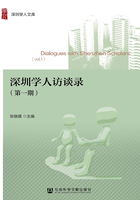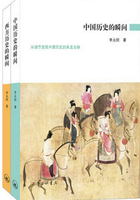"The United States of America"! It was in the Declaration of Independence that this name was first and formally proclaimed to the world, and to maintain its verity the war of the Revolution was fought. Americans like to think that they were then assuming "among the Powers of the Earth the equal and independent Station to which the Laws of Nature and of Nature's God entitle them"; and, in view of their subsequent marvelous development, they are inclined to add that it must have been before an expectant world.
In these days of prosperity and national greatness it is hard to realize that the achievement of independence did not place the United States on a footing of equality with other countries and that, in fact, the new state was more or less an unwelcome member of the world family. It is nevertheless true that the latest comer into the family of nations did not for a long time command the respect of the world. This lack of respect was partly due to the character of the American population. Along with the many estimable and excellent people who had come to British North America inspired by the best of motives, there had come others who were not regarded favorably by the governing classes of Europe. Discontent is frequently a healthful sign and a forerunner of progress, but it makes one an uncomfortable neighbor in a satisfied and conservative community; and discontent was the underlying factor in the migration from the Old World to the New. In any composite immigrant population such as that of the United States there was bound to be a large element of undesirables. Among those who came "for conscience's sake" were the best type of religious protestants, but there were also religious cranks from many countries, of almost every conceivable sect and of no sect at all. Many of the newcomers were poor. It was common, too, to regard colonies as inferior places of residence to which objectionable persons might be encouraged to go and where the average of the population was lowered by the influx of convicts and thousands of slaves.
"The great number of emigrants from Europe"--wrote Thieriot, Saxon Commissioner of Commerce to America, from Philadelphia in 1784--"has filled this place with worthless persons to such a degree that scarcely a day passes without theft, robbery, or even assassination."* It would perhaps be too much to say that the people of the United States were looked upon by the rest of the world as only half civilized, but certainly they were regarded as of lower social standing and of inferior quality, and many of them were known to be rough, uncultured, and ignorant. Great Britain and Germany maintained American missionary societies, not, as might perhaps be expected, for the benefit of the Indian or negro, but for the poor, benighted colonists themselves; and Great Britain refused to commission a minister to her former colonies for nearly ten years after their independence had been recognized.
* Quoted by W. E. Lingelbach, "History Teacher's Magazine,"
March, 1913.
It is usually thought that the dregs of humiliation have been reached when the rights of foreigners are not considered safe in a particular country, so that another state insists upon establishing therein its own tribunal for the trial of its citizens or subjects. Yet that is what the French insisted upon in the United States, and they were supposed to be especially friendly. They had had their own experience in America. First the native Indian had appealed to their imagination. Then, at an appropriate moment, they seemed to see in the Americans a living embodiment of the philosophical theories of the time: they thought that they had at last found "the natural man" of Rousseau and Voltaire; they believed that they saw the social contract theory being worked out before their very eyes. Nevertheless, in spite of this interest in Americans, the French looked upon them as an inferior people over whom they would have liked to exercise a sort of protectorate. To them the Americans seemed to lack a proper knowledge of the amenities of life. Commissioner Thieriot, describing the administration of justice in the new republic, noticed that: "A Frenchman, with the prejudices of his country and accustomed to court sessions in which the officers have imposing robes and a uniform that makes it impossible to recognize them, smiles at seeing in the court room men dressed in street clothes, simple, often quite common. He is astonished to see the public enter and leave the court room freely, those who prefer even keeping their hats on." Later he adds: "It appears that the court of France wished to set up a jurisdiction of its own on this continent for all matters involving French subjects."
France failed in this; but at the very time that peace was under discussion Congress authorized Franklin to negotiate a consular convention, ratified a few years later, according to which the citizens of the United States and the subjects of the French King in the country of the other should be tried by their respective consuls or vice-consuls. Though this agreement was made reciprocal in its terms and so saved appearances for the honor of the new nation, nevertheless in submitting it to Congress John Jay clearly pointed out that it was reciprocal in name rather than in substance, as there were few or no Americans in France but an increasing number of Frenchmen in the United States.
Such was the status of the new republic in the family of nations when the time approached for the negotiation of a treaty of peace with the mother country. The war really ended with the surrender of Cornwallis at Yorktown in 1781. Yet even then the British were unwilling to concede the independence of the revolted colonies.















